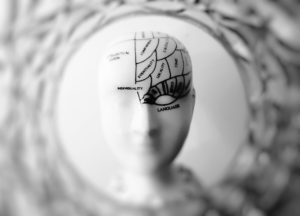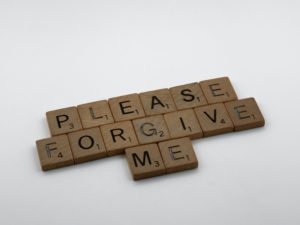Tagged: “Why Forgive?”
Dr. Enright Interviews with Dr. Sanjay Gupta on His CNN Podcast, Chasing Life

Image by pexels.com
On December 5, 2023 Dr. Enright engaged in a 35 minute interview with Dr. Sanjay Gupta for his CNN podcast, Chasing Life. It was a wide-ranging interview including what forgiveness is and is not, the scientific evidence for the efficacy of forgiving those who have been deeply unjust, and the psychological and physical outcomes for those who forgive. They even discussed the effects of forgiving on the brain. Click on this link to listen to the episode or read the transcript of the episode!
Jewish Mother Forgives the Israeli Soldiers Who Mistakenly Killed Her Hostage Son
The Times of Israel newspaper, on December 22, 2023, reported on a story in which one of the soldiers visited the mother, Iris Haim, of an Israeli citizen who was mistakenly shot in Gaza by soldiers from the 17th Battalion of the Bislamach Brigade. The son, Yotam Haim, was killed on December 15 along with two other hostages, who were mistaken as a threat.

Image by Pexels.com
In a recorded message from Mrs. Haim to the soldiers, she said this as reported in The Times of Israel: ““I am Yotam’s mother. Iwanted to tell you that I love you very much, and I hug you here from afar. I know that everything that happened is absolutely not your fault……I want you to look after yourselves.”
The soldier, as reported in the newspaper, said this to Mrs. Haim: ““We received your message, and since then we have been able to function again…….Before that we had shut down.” In other words, their receiving Mrs. Haim’s forgiveness allowed them to reclaim their lives.
Such early and sincere forgiveness is not for everyone. For example, the brother of one of the others slain in this incident expressed bitterness toward the Defense Minister of Israel, blaming him and saying that he would “hunt after him.” When asked if his anger would consume him, the brother of the slain man replied, again as reported in The Times: ““I don’t have anything left to consume.”
Iris Haim is a living example of how forgiveness, after severe tragedy, can amaze and surprise the world.
When “forgiveness” is not forgiveness
We recently did an Internet search in which we typed in the term “forgiveness in the news.” On the first page there were 13 entries. Of those 13, 12 were about “student loan forgiveness.” This is a term that has been used for years within the media. We at the International Forgiveness Institute would like to clarify an important issue. “Student loan forgiveness” is not the correct term for the following reasons:

Image by Pexels.com
- To forgive means that the one forgiven has done something morally wrong, but the students did not act unjustly as they engaged in the proper procedures to secure those loans.
- There is a difference between a legal pardon and forgiveness. When there is legal pardon, there is mercy shown, in this case by exonerating the students from paying back the loans or at least part of those loans. Yet, the ones exonerating are not personally hurt by the students and so they are not engaging in forgiving the students.
The proper term would be “student loan pardons.” This would be more accurate and not lead people to inadvertently distort the meaning of the word “forgiveness.”
The Invisible People and Inherent Worth
Have you ever visited people who are in a maximum-security correctional institution? After going through many secured doors, there you are with some people who literally never will walk out of those doors. In one of my visits to such a facility, I sat with 10 men who recently went through a forgiveness program. I was eager to hear about their experience with it. They liked it.

Image by Pexels.com
What struck me the most, actually, was not their kind and positive response to the forgiveness program, but instead was their view of who they are to other people. “Once you are in here, you become invisible,” one man asserted. The others perked up at this point and agreed with the statement. “We are invisible” was the resounding theme.
It seems that this proclaimed idea was deepened by the forgiveness program, in which each man learned about, and thought deeply about, an important tenet of forgiveness: We are all persons of worth, not because of any bad behavior, but despite this. Each man learned this and applied it successfully to those who deeply abused them while they were in childhood or adolescence. Those who hurt them have worth despite the cruelty. This view helped them to forgive and to shed clinical levels of anger, anxiety, and depression.
Despite the encouraging findings of mental health improvement in the men, some people might wonder: Is it possible that the forgiveness program had a negative effect on them? Here is what I mean: By studying the vital idea of the inherent worth of all people, these men might now become sad or angry that others are not necessarily treating them with this kind of built-in worth. In other words, might the forgiveness program have accentuated this negative situation for them, leading now to the view that they are “invisible” to others and further to the view that they definitely should not be treated this way? The contrast between who they truly are as persons (which is persons of worth) and how they are viewed and treated by others might have become more clear because of the forgiveness program. Yet, I do not see this as a negative for the following four reasons.
First, the forgiveness program did not create the awareness that they are “invisible.” It may have clarified this, but the idea already was in their mind. I say that because, in relating their stories to me, they shared that they were aware of this reality soon after entering the institution. Second, with the forgiveness program, they learned this: Even if people do not treat them as persons of worth, they now can treat themselves as persons of worth. Third, they now have the tool, forgiveness, to forgive those who treat them as less worthy than who they really are. Fourth, those who have learned this lesson of forgiveness can now be supports for one another as they show each other this: We are each valuable; we each have built-in worth.
As one example of extending inherent worth to others, one person said this to me: “I am never getting out of prison. Yet, I now have a new purpose which is to help my cell mates learn to forgive.” He developed a new purpose in life after a forgiveness program. He has made a commitment to easing the pain in others……because he sees that they have inherent worth and are worthy of emotional healing from what they have suffered in the past.
We need to widen our view of those in corrections. What can we do so that we see their inherent worth? What can we do to communicate this to them, without the error of extremism by falsely claiming that, because of this worth, they now can be fully trusted outside these walls and should be unconditionally released? In other words, we do not want to make the philosophical error of equating worth with unmitigated trust and therefore call for the release of all in correctional facilities that actually might keep others safe.
Being “invisible” is hard. Knowing deep down that one has infinite worth, despite this treatment by others of being ignored, can protect people from the lie that they have no value. Forgiveness can restore a person’s sense of value even when others look away.
![]()
The Two A’s of Forgiving: Awareness Before Action
What precisely are you doing and not doing when you begin to forgive someone for something this person has done to you? I think the most basic problem is this: defining forgiveness before we actually practice it.

Image by Pexels.com
Some would argue that you are acting weakly because only the weak are able to forgive; the strong always win out, much likeNietzsche proclaimed in the late 19th century. Some would argue that returning to an unhealthy situation exposes you to abuse, but this confuses reconciliation and forgiveness. Even if you are disregarding the person who treated you unfairly, some would argue that you are moving on by “forgiving.” Not one of these truly conveys what forgiveness actually is.
Goodness toward those who have treated us unfairly is what forgiveness is. This goodness can take the form of giving up resentment, showing mercy and compassion, and even showing agape love (though this love may take some time to develop and small steps toward it may be necessary). See the reference below for more information on agape love. Most of the time, when people argue about forgiveness, the main point of contention is usually its definition. If the definition is incomplete or wrong, then the process of going about forgiving someone who offended may be distorted. Awareness before action is the key to beginning forgiveness well.
Enright, R.D., Wang Xu, J., Rapp, H., Evans, M., & Song, J. (2022). The philosophy and social science of agape love. Journal of Theoretical and Philosophical Psychology, 42(4), 220–237. https://doi.org/10.1037/teo0000202
![]()



